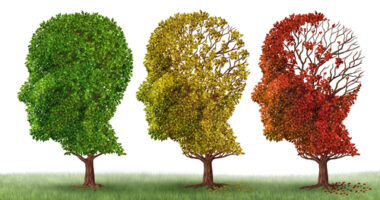Massachusetts Center Will Use AI to Help Improve In-home Care

The MassAITC project was recently launched to focus on using artificial intelligence (AI) to improve in-home care for older adults and others with Alzheimer’s disease, with the help of a five-year, $20-million grant from the National Institute on Aging, a part of the National Institutes of Health.
MassAITC, which stands for Massachusetts AI and Technology Center for Connected Care in Aging and Alzheimer’s Disease, will find ways artificial intelligence can be used to support patients at home with devices such as wearable and contactless sensors.
“The center will leverage the campus’s considerable expertise in AI and life sciences to develop advanced care for Alzheimer’s patients and address healthcare disparities associated with the disease,” Kumble R. Subbaswamy, PhD, chancellor of UMass Amherst, said in a university press release.
More than 90% of older Americans would prefer to age at home, according to the release, but without support, this goal is often out of reach for most. At-home devices hold significant promise, but they have not been specifically developed for older adults or Alzheimer’s patients, nor are they capable of being delivered and managed remotely and adapted to a patient need’s.
“Artificial intelligence has the potential to transform important areas of science and medicine, but there is a critical need to bring the power of AI to the patients, caregivers and clinicians who need it most,” said Paul Anderson, MD, PhD, senior vice president of research and education at Brigham and Women’s Hospital, which is collaborating with UMass Amherst.
“This grant will allow experts from across our state to come together to help address this key gap,” he said.
Other collaborators in the center, which will be housed at UMass Amherst, include Massachusetts General Hospital, Brandeis University, and Northeastern University.
MassAITC “brings together outstanding capabilities from across the Commonwealth, including state-of-the-art facilities for rapid AI-enhanced technology development and patient cohorts to facilitate validation of these technologies in real-world, at-home settings,” said Niteesh Choudhry, MD, PhD, co-leader of the center and a director at Brigham and Women’s Hospital and Harvard Medical School.
By bringing together these interdisciplinary institutions, the combined expertise at MassAITC can help to speed up how fast technologies and programs are brought to the public. The goal is to allow AI technologies and machine learning to provide better at-home healthcare for patients and their caregivers, according to the release.
“One of the center’s goals is to take work that is still in the lab and transition it toward the field so that it can actually support care and make a measurable change in people’s lives,” said Benjamin Marlin, PhD, the center’s associate director and a computer science professor at UMass Amherst.







